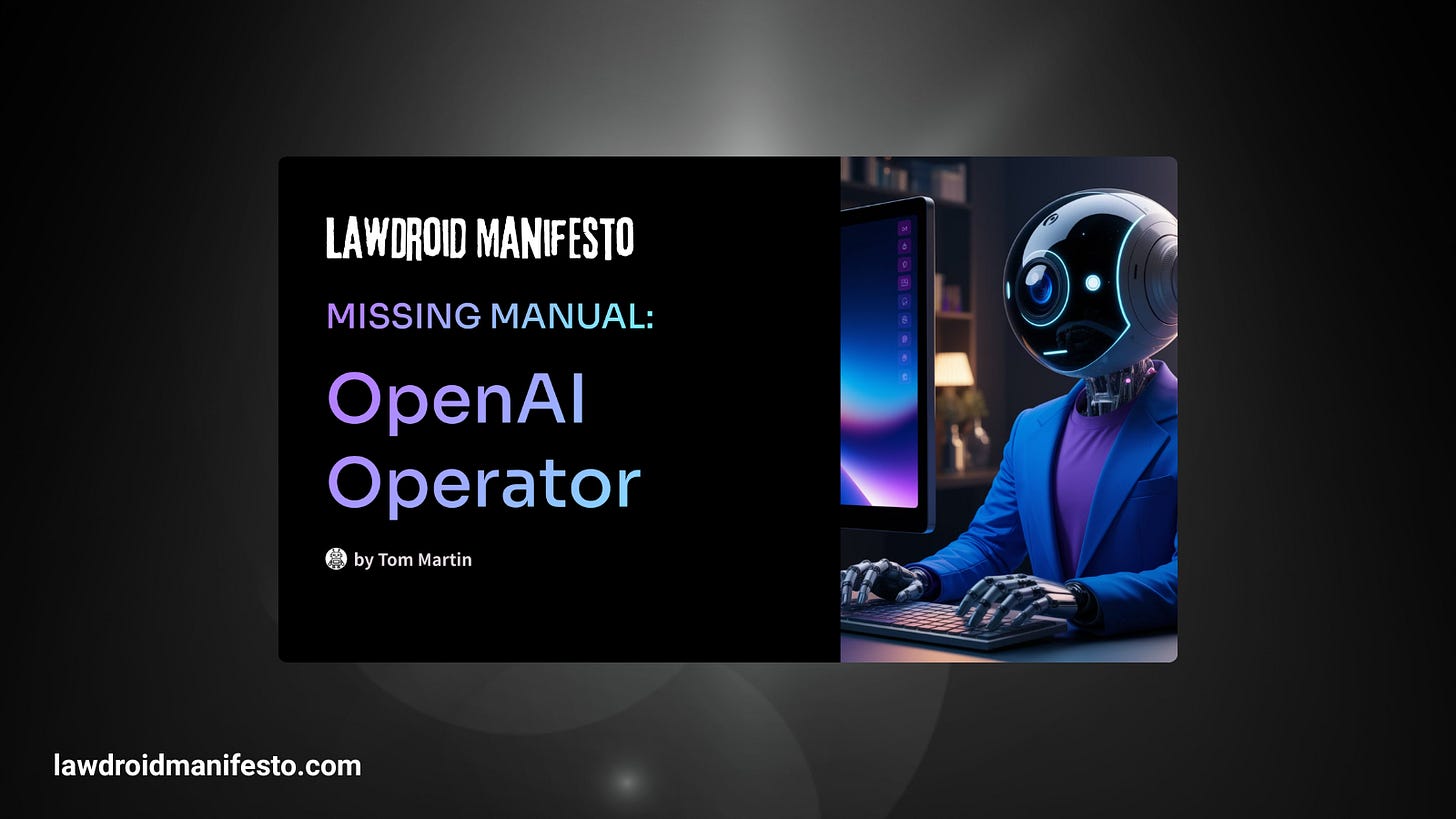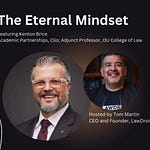Hey there Legal Rebels! 👋 I'm excited to share with you the 13th episode of the 2025 season of the LawDroid Manifesto podcast, where I will be continuing to interview key legal innovators to learn how they do what they do. I think you're going to enjoy this one!
If you want to understand how AI can transform access to justice and the role technology plays in democratizing legal information, you need to listen to this episode. Sateesh is at the forefront of integrating AI into legal services and has a unique perspective shaped by his 20 years of experience representing tenants in housing court.
From Courtrooms to Code: Revolutionizing Access to Justice with AI
Join me as I interview Sateesh Nori, an adjunct professor at NYU and legal innovation strategist at Just-Tech who has dedicated his career to making legal services more accessible.
In this insightful podcast episode, Sateesh shares his journey from immigrant roots to becoming a legal services attorney and now an advocate for AI in the legal profession. He takes us through his formative experiences, from childhood debate tournaments to representing tenants in housing court for two decades, and his recent pivot to embracing AI as a solution to the justice gap.
Sateesh discusses his work with Roxanne AI, a chatbot providing actionable legal information on housing issues, and his efforts to educate legal professionals through AI University. His passion for using technology to address the 92% of civil legal problems that go unaddressed in America makes this episode essential viewing for anyone interested in legal innovation and access to justice.
The Skinny
In this episode, Sateesh Nori shares his remarkable journey from being the child of Indian immigrants to becoming a prominent voice in legal tech innovation. Influenced by his grandfather who suggested he become a lawyer, Sateesh pursued debate in school before eventually finding his calling in legal services. For 20 years, he represented tenants in New York City housing court, an experience he documented in his book "Sheltered: 20 Years in Housing Court." The pandemic prompted him to seek a new challenge, leading him to Just Tech where he discovered the transformative potential of AI for legal services. He's now developing Roxanne AI, a tool that provides "actionable legal information" to help bridge the justice gap, and running AI University to educate legal professionals about these new technologies. Throughout the conversation, Sateesh emphasizes how AI can democratize access to legal information and help uphold equal access to justice.
Key Takeaways:
Early exposure to debate and advocacy created a foundation for Sateesh's legal career
After 20 years in housing law, witnessing the justice gap firsthand motivated his transition to legal tech
AI can provide "actionable legal information" without crossing into unauthorized practice of law
92% of civil legal problems in America go unaddressed - there will never be enough lawyers to solve this problem
Law schools must incorporate AI education to prepare students for the rapidly changing legal landscape
The most impactful legal work isn't always about winning cases, but about preserving human dignity
AI University is teaching legal professionals to build and use AI tools to increase efficiency and access to justice
Maintaining passion for your work makes juggling multiple projects possible
Notable Quotes:
"When AI hit and I started seeing demos, it was like a religious conversion for me. I felt like I was struck by lightning on a battlefield... and realized like we can't go back to the way that we've been doing things." - Sateesh Nori (03:08-03:25)
"I didn't become a lawyer to work with other lawyers. I don't like lawyers. They're not the most fun people to hang around with. But I went to law school to try to help solve problems for ordinary folks." - Sateesh Nori (04:05-04:20)
"More important than winning or losing was that you stand beside somebody and allow them to express their human dignity. That's what our legal process should be about is, everyone should get a chance to be heard." - Sateesh Nori (27:11-27:19)
"92% of the civil legal problems in America go unaddressed every year. So we're getting even further away from solutions. And we can't just think we're going to throw more lawyers at the problem." - Sateesh Nori (40:50-41:07)
"The way lawyers are gonna work, probably even in a year, is gonna be intensely using AI. And we need to make sure law students are ready for that world, or they're going to be obsolete." - Sateesh Nori (46:53-47:00)
Clips
Balancing Work and Passion: The Key to Handling Multiple Commitments
Choosing a Different Path Despite Family Expectations
Disillusionment with Politics and the Path to Law School
Reflections on Managing Legal Aid and Writing a Book
This conversation with Sateesh highlights the urgent need for innovation in legal services and how AI can help democratize access to legal information. His journey from a traditional legal services attorney to an AI advocate demonstrates how technology can help bridge the justice gap while still maintaining the human element that makes legal representation meaningful.
Closing Thoughts
What struck me most about my conversation with Sateesh is his unwavering commitment to human dignity throughout his evolution as a legal professional. Whether representing tenants in housing court or developing AI tools like Roxanne, his North Star has always been making the legal system accessible to those who need it most. I truly respect that. As we navigate this AI revolution in legal services, Sateesh reminds us that technology should enhance, not replace, the human connection that makes legal representation meaningful. His story is a powerful example of how embracing innovation can amplify our impact and help us better serve those who have traditionally been left behind by our justice system. I hope this episode inspires you to explore how technology might transform your own practice and expand access to justice.
By the way, if you were to become a LawDroid Manifesto premium subscriber, you would get access to exclusive toolkits, like the Missing Manual: OpenAI Operator, coming out next month…
With these premium toolkits, you not only learn about the latest AI innovations and news items, but you get the playbook for how to use them to your advantage.
If you want to be at the front of the line to get first access to helpful guides like this, and have the inside track to use AI as a force multiplier in your work, upgrade to become a premium LawDroid Manifesto subscriber today!
I look forward to seeing you on the inside. ;)
Cheers,
Tom Martin
CEO and Founder, LawDroid















